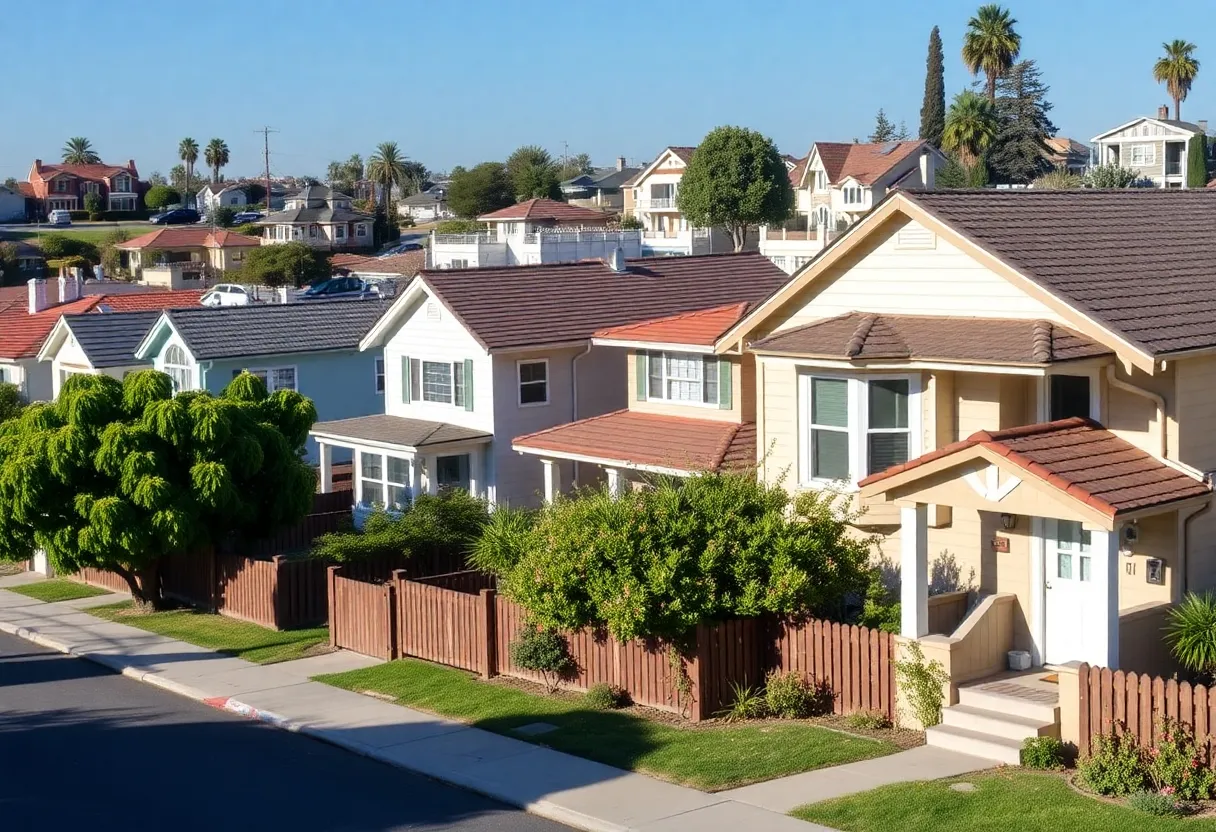News Summary
San Diego’s city council has announced a cap on accessory dwelling units (ADUs) permitted on single-family lots in response to community concerns over large developments. The new regulations limit the number of ADUs allowed based on lot size, aiming to address excessive housing density. This decision comes amid criticism of local developer Christian Spicer’s large-scale ADU projects, which have sparked debate about housing policy and neighborhood integrity. The council’s move seeks to balance the need for affordable housing while maintaining community character.
San Diego is instituting a cap on the number of accessory dwelling units (ADUs) permitted on single-family lots following a series of controversial large-scale developments led by the local developer Christian Spicer. This decision was taken by the city council in an effort to mitigate excessive housing density and adhere to community concerns regarding neighborhood integrity.
Last month, the city council voted to limit the number of ADUs that can be built on residential lots based on the size of those lots. The new regulations allow a maximum of:
- Four ADUs on lots smaller than 8,000 square feet
- Five ADUs on lots measuring between 8,001 and 10,000 square feet
- Six ADUs on larger lots
This response emerged after criticism aimed at Spicer who has been instrumental in numerous ADU projects in San Diego. His team has completed two large projects that each include more than 100 ADUs and several smaller developments with over 20 units, leading city officials to classify these expansions as outliers. Critics argue that such large developments were not the intended outcome of the ADU incentive program originally designed to promote additional affordable housing options.
The ADU incentive program was launched in 2020, encouraging property owners to create bonus ADUs near transit hubs in exchange for low- or moderate-income housing units. However, Spicer’s projects have been linked to the exploitation of these incentives. Developers have been able to build more units by designating them as deed-restricted for low-income tenants, particularly on larger, irregularly shaped lots. This created fears of rampant density growth outpacing neighborhood character and infrastructure capabilities.
Councilmembers have voiced their concerns about unintended repercussions, emphasizing that large ADUs were not the objective of the incentive scheme. In response, Spicer maintains that his developments aim to tackle San Diego’s affordable housing crisis and comply with existing city regulations. He suggested that the new cap might lead to the dispersion of dense housing developments across additional properties rather than eliminating the projects altogether.
Despite these claims, other developers have managed to navigate the bonus program with smaller, more manageable projects without attracting the same level of public opposition faced by Spicer. Local residents have criticized the impact of Spicer’s developments on neighborhood character, parking issues, and strain on existing infrastructure. A grassroots group named Neighbors for a Better San Diego has emerged, actively opposing large ADU constructions and representing community concerns regarding rapid neighborhood changes.
In light of warnings from the state that a rollback of the incentive program could pose risks to San Diego’s housing development status, city officials have adjusted the ADU regulations in hopes of maintaining compliance and promoting sustainable growth.
Academic analyses have indicated that San Diego’s ADU bonus program is notably permissive compared to other similar city zoning efforts nationwide, prompting some debate about the efficacy and direction of local housing policy.
While the current rollback has received preliminary approval, it requires a second vote from the city council to become finalized. The matter has sparked discussions among council members, highlighting the ongoing contention between the necessity for adequate housing development and the preservation of neighborhood integrity. Public testimony during council hearings revealed the prevailing tension, as many residents argued for either the continuation or minor modification of the incentive program to strike a balance between housing needs and maintaining community cohesion.
Deeper Dive: News & Info About This Topic
HERE Resources
San Diego County Planning Commission Blocks Sand Mine Project
California Governor Signs Housing Reform Bills
San Diego City Council Approves New ADU Regulations
ASID San Diego Launches ‘Summer Spruce Up’ Program
Concerns Rise After ICE Raid at San Diego Restaurant
San Diego City Council Approves New Restrictions on ADUs
San Diego City Council Caps Backyard Apartments to Tackle Overdevelopment
San Diego City Council Approves Changes to Parking Fees
Protests Erupt in San Diego Following Controversial ICE Raid
California Experiences Major Changes in Transportation and Business
Additional Resources
- San Diego Union-Tribune: Council OKs Controversial Housing Development
- CBS8: Residents Debate Proposed ADU Regulation Changes
- Fox 5 San Diego: City Council Votes to Roll Back Controversial ADU Program
- NBC San Diego: Mayor Proposes Changes to ADU Program
- Times of San Diego: Council Votes to Restrict Bonus ADU Program
- Wikipedia: Accessory Dwelling Unit
- Google Search: Accessory Dwelling Units San Diego
- Google Scholar: Accessory Dwelling Units Regulations
- Encyclopedia Britannica: Accessory Dwelling Units
- Google News: San Diego Housing Development

Author: STAFF HERE SAN DIEGO WRITER
The SAN DIEGO STAFF WRITER represents the experienced team at HERESanDiego.com, your go-to source for actionable local news and information in San Diego, San Diego County, and beyond. Specializing in "news you can use," we cover essential topics like product reviews for personal and business needs, local business directories, politics, real estate trends, neighborhood insights, and state news affecting the area—with deep expertise drawn from years of dedicated reporting and strong community input, including local press releases and business updates. We deliver top reporting on high-value events such as Comic-Con International, San Diego County Fair, and San Diego Pride Festival. Our coverage extends to key organizations like the San Diego Regional Chamber of Commerce and United Way of San Diego County, plus leading businesses in biotechnology, healthcare, and technology that power the local economy such as Qualcomm, Illumina, and Scripps Health. As part of the broader HERE network, including HEREAnaheim.com, HEREBeverlyHills.com, HERECostaMesa.com, HERECoronado.com, HEREHollywood.com, HEREHuntingtonBeach.com, HERELongBeach.com, HERELosAngeles.com, HEREMissionViejo.com, and HERESantaAna.com, we provide comprehensive, credible insights into California's dynamic landscape.


